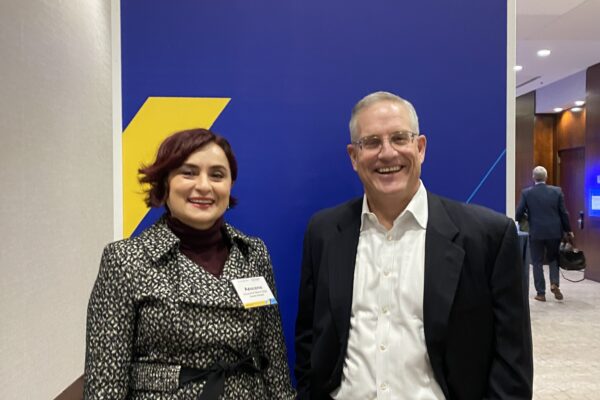4-1-22 As seen in the Rochester Business Journal - M&A lawyers keep busy despite pandemic barriers
U.S. acquisitions reached $2.6 trillion in 2021
By: Special to the RBJ Caurie Putnam
2021 was a record-breaking year globally and nationally for mergers (combining two separate businesses into one new legal entity) and acquisitions (when a purchased company gets fully absorbed by an acquiring company).
Per Refinitiv – an American-British global provider of financial market data –worldwide manufacturing and acquisition (M&A) volumes reached $5.9 trillion in value in 2021 – an increase of 64% since the firm began tracking data in 1980. In the U.S., acquisitions increased 82% over 2020, reaching $2.6 trillion.
“M&A in late 2000 to 2021 was the most robust I can remember in my thirty-plus year career,” said Anthony Cotroneo, a partner at Woods Oviatt Gilman LLP.
“M&A activity increased substantially in 2021 due to very low interest rates, enormous rates of capital, and valuation being very high. We saw aggressive buyers and willing sellers.”
As we close out Q1 of 2022, Cotroneo calls the current volume of M&A activity “healthy, steady, a bit ahead of normal, but not quite at the Q4 2021 pace.”
The jury is out on how much the increased ability to conduct business remotely – spurred by the COVID-19 pandemic — has affected the process of completing a merger or acquisition, but both local M&A professionals we spoke to believe it has played a role.
“M&A lawyers don’t have a traditional 9-5 job to begin with; we work for the deal,” said Cotroneo, who was drawn to this specialty of law due to his longtime interest in business. “For many years we’ve worked remotely and after hours to complete international transactions and deals, but the pandemic made it more prevalent, and we’ve all gotten better at it.”
While Cotroneo still enjoys face-to-face meetings with his clients, the increased normalcy of meeting virtually has sped up some parts of M&A deals but it has also presented some challenges.
During the time the country was in lockdown, for example, “training lagged for younger attorneys,” nationwide, Cotroneo said. “Younger attorneys and paralegals didn’t have that in-person face time with more experienced attorneys.” He is seeing that come back, though, as more firms return to in-person and hybrid work and colleagues feel more comfortable, in general, connecting virtually.
Wesley M. René, an associate attorney at Harris Beach PLLC, has been practicing in the M&A space for about four years and wasn’t sure what to expect when the pandemic hit. Would business continue to come in? Would there be buyers?
“My first takeaway was that, from my perspective, M&A had become so streamlined over the years that we were set up for remote work,” said René, who noted at least 50% of opposing counsel he works with is located out of state, so he was already used to interacting with that group remotely. “I quickly realized, ‘We can handle this; we’re set up to handle this.’ We’re already used to dealing with late nights and turning in documents at odd hours.”
René represents a wide range of clients from sophisticated tech companies to small businesses with M&A needs. Before the pandemic, most wanted to come in the office, but throughout the pandemic more chose to meet virtually.
“The relationship evolves more rapidly when we can meet face to face,” René said. “But, if that’s not an option, clients are way more engaged on a video chat than a phone call. At the end of the day, the most important thing is that we get the deal done the way our clients want it done.”
René was drawn towards M&A work because of the challenges it presents, like extremely aggressive deadlines and the working differences between each client and deal.
“From an M&A perspective, one of the benefits of the home/work evolution is that availability and accessibility have increased dramatically,” René said. “People are closer to the work and that has helped us in terms of expediting the path to closing.”
Michael Hess, founder, president/CEO, of Waste Harmonics, a national technology-enabled managed waste service provider headquartered in Victor, Ontario County, knows how important relationships are in M&A deals.
Since the pandemic began they’ve acquired three companies: Contelligent, an intelligent container monitoring solutions and analytics business, Talismark, a waste solutions management company, and most recently, Meridian Alliance Partners, a certified solid waste and recycling specialist.
“In my view, M&A is about creating trust with a seller and being able to create certainty to close,” Hess said. “Trying to get deals done in a remote environment is both more difficult and easier at the same time.”
Challenges, Hess noted, include reading body language and the “feel” of the room in a video call, while benefits translate to less time spent traveling and more time spent exchanging documents and working through purchase agreements and such.
Hess doesn’t feel the pandemic played any role in the acquisition of Meridian in terms of influence on time to close, pointing instead to diligence and deal terms as the influential factors.
“I think the one thing we’ve noticed is the impact the pandemic has had — in some cases significant — on individual businesses,” Hess said. “We’ve seen a few opportunities get delayed because their businesses saw revenue and earnings decline during the past two years. Sellers have decided to delay a potential transaction until they can rebuild their income statement and balance sheet to more normal levels. For us, it just means we will continue to be patient and remain ready to engage when sellers are ready.”


